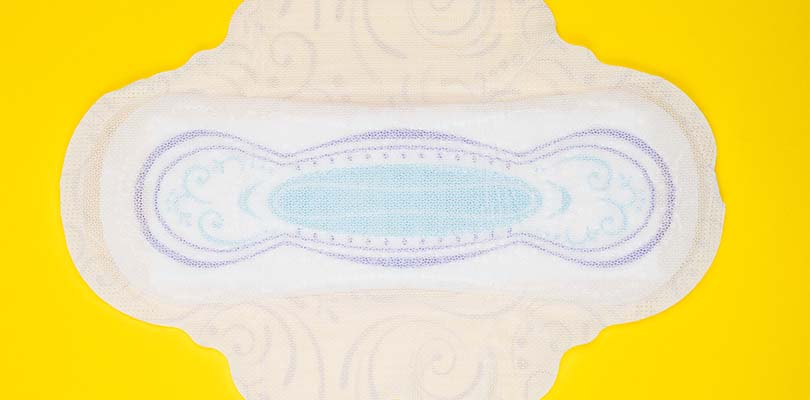How Fertility Treatment can Help
Infertility is more common than you may think. It is estimated to affect as many as 12% to 13% of couples in the United States.
Infertility is diagnosed when a couple is unable to conceive within 12 months of having regular, unprotected sex. It also refers to couples who can conceive but are unable to maintain a pregnancy.
Being diagnosed with fertility problems is incredibly distressing. However, there are serval options which may help infertile couples achieve their dream of becoming parents.
What Causes Fertility Problems?
Fertility problems can affect both women and men. In some couples, both partners may be affected.
Some of the most common causes of fertility problems in women include:
- Polycystic ovary syndrome (PCOS)
- Thyroid problems (underactive or overactive thyroid)
- Premature ovarian failure
- Endometriosis
- Fibroids
- Blocked fallopian tubes
- Cervical mucus problems
- Certain medications or medical treatments
Some of the most common causes of fertility problems in men include:
- Low sperm count
- Poor sperm motility (movement)
- Abnormally shaped sperm
- Ejaculation disorders
- Testicular damage
- Low testosterone
- Certain medications or medical treatments
For some couples, no obvious cause can be found for their fertility problems. This is known as “unexplained infertility.” Unexplained infertility may affect as many as 25% of couples with fertility problems.
What is Fertility Treatment?
Fertility treatment aims to increase a couple’s chances of conceiving using medication, surgery, or assisted reproductive technology (ART). The most appropriate treatment will vary from couple to couple. It depends on the cause of their infertility as well as factors like age and overall health.
Types of Fertility Treatment
There are several different types of fertility treatment available. Some of the most common types include the following:
Lifestyle Changes
For some couples, making a few simple lifestyle changes could be enough to increase their chances of conception. These changes might include:
- Dietary changes
- Losing or gaining weight
- Stopping smoking and other substance use
- Changing sexual habits
These methods may not work for everyone. However, it is a good idea for any couple planning pregnancy to ensure they are in the best health possible. This will not only help to improve their chances of conceiving, but also reduce the risk of complications during and after pregnancy.
Vaping has become a popular trend with some saying it's safer than smoking. However, the argument between vaping vs. smoking still needs more research.
Medication
One of the most common fertility treatments is medication. It can be used to trigger ovulation or stimulate egg production prior to IVF. Some common fertility medications include:
- Clomifene
- Letrozole
- Bromocriptine
- Cabergoline
- Metformin (for women with PCOS)
- Gonadotropins or human chorionic gonadotropin
Gonadotropins are most commonly used to help stimulate ovulation in women. However, they may also help men with certain fertility problems.
Surgery
If a woman has blocked fallopian tubes due to scarring or adhesions, these can be removed surgically. Surgery may also be helpful for women with endometriosis, fibroids, or PCOS. These procedures are usually performed by laparoscopy, also known as keyhole surgery.
Men may also need surgery if they have a blocked epididymis (the tube that carries sperm from the testes to the penis). In conditions like ejaculation disorders, sperm may also be extracted from the testes surgically.
Intrauterine Insemination (IUI)
IUI is a type of ART. It involves artificially inserting sperm into the uterus using a thin, plastic tube. This treatment can be timed according to the woman’s natural menstrual cycle or by using medication to induce ovulation. IUI can be performed using donor sperm if necessary.
In-vitro Fertilization (IVF)
IVF is another form of ART and probably the best known type of fertility treatment. In IVF, an egg is fertilized outside of the body and allowed to develop into an embryo before returning it to the uterus. IVF is a complex process and there are five main stages to an IVF cycle:
1.Stimulation – medication is used to stimulate the woman’s ovaries to produce multiple eggs
2.Retrieval – this is a minor surgery in which eggs are removed from the woman’s ovaries
3.Insemination – the eggs are fertilized with sperm. If the sperm quality is poor, a procedure known as intracytoplasmic sperm injection (ICSI) may be used to inject a single sperm directly into the egg.
4.Embryo culture – over the course of several days, the fertilized cells divide to form an embryo
5.Embryo transfer – the healthiest embryo or embryos are returned to the uterus
IVF can be performed using the couple’s own eggs and sperm, or those from a donor if necessary.
Using a Surrogate
For some couples, using a surrogate may be their only option. Also known as a “gestational carrier,” a surrogate carries a child for a woman who is unable to do so herself.
Average Cost of Fertility Treatment
The cost of fertility treatment varies greatly depending on the type of treatment and the clinic where it is performed. The average cost of fertility treatment is estimated at $11,000 to $12,000 per cycle.
IVF is one of the most expensive fertility treatments and can cost up to $15,000. Medication may also cost between $1500 and $3000 per cycle in addition to this.
Some insurance plans may cover certain fertility treatment costs, but others may not. Read your plan carefully or call your insurer to find out exactly what is covered. If you have a flexible spending account (FSA) or health savings account (HAS) you may be able to put this towards your fertility treatment.
Side Effects of Fertility Treatment
Many of the medications used in fertility treatments can cause side effects. Some of the most common of these include:
- Hot flashes
- Headaches
- Nausea
- Vomiting
- Ovarian hyperstimulation syndrome (OHSS)
In addition, invasive procedures such as surgery carry the risk of bleeding and infection.
Another possible complication of fertility treatment is the risk of multiple pregnancy. This can increase the chances of premature birth or other issues such as gestational diabetes.
Finally, fertility treatment can be extremely stressful. Therefore, it is essential that you take steps to stay mentally healthy if you are undergoing fertility treatment. Talk to family and friends about what you are going through and see a counselor if necessary.







